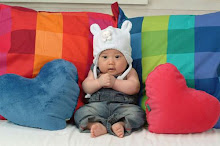
Massage, in whatever form, at the very least loosens the muscles and takes away pain and strain from the body, relaxes the body and calms the mind. A good massage that is done regularly helps to stimulate the release of feel-good hormones known as endorphins. It also improves the circulation of blood within the body and makes the elimination of wastes from the body more efficient.
Another good thing about massage is that it is not just for the body and the limbs. Massage can also be done on the face, and facial massage is touted to be one of the best anti-aging treatments ever.
Facial massage is good because of many reasons. For one, massage helps to exfoliate the skin, taking away dirt and dead skin cells that make the skin look dull. For another, massage increases the circulation of blood to the face, and such improved circulation makes the skin more nourished and brings to it a healthy glow. And yet another reason is that massage improves the elasticity of the skin, thereby removing the wrinkles and fine lines that are associated with aging.
Facial massage starts with the cleansing of the face. The skin of the face is exposed to warm steam, which then opens the pores of the skin. Using a gentle cleanser and other tools, the therapist cleans away the dirt and makeup off of the face. She may also use other tools to slough off blackheads and whiteheads.
Once the skin is cleansed, moisturizer is applied to the face to reduce the friction that would otherwise irritate facial skin. The type of moisturizer that the therapist would use depends on the skin type of the client’s face. Thick and heavy moisturizer is applied to dry facial skin; on the other hand, only light moisturizer is applied to oily facial skin. Sometimes, the application of moisturizer is skipped for people with extremely oily skin.
The facial massage routine that therapists typically use:
1. The hands are cupped around the head. In this, the thumbs would be placed on the forehead while the fingertips are at the temples. Using the thumbs, short vertical strokes are applied to the forehead, first to the line just above the eyebrows, and then moving upward to the hairline.
2. Light pressure is applied between the eyebrows using the thumbs. The thumbs then crawl along the center of the forehead towards the direction of the hairline.
3. Circular movements are made with the fingers on the temples, working from the temples down to the side of the face, until the fingers reach the jawbone and then the chin.
4. A line is traced with the fingertips from under the cheekbones to the temples.
5. Another line, like a mustache, is drawn using the fingertips from the upper lip towards the temples. Once the fingertips reach the temples, a circle is drawn there once or twice.

No comments:
Post a Comment